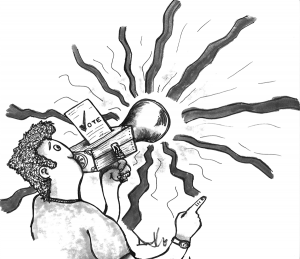 One of the most important freedoms we have as Americans is the right to vote.
One of the most important freedoms we have as Americans is the right to vote.
In 2008, we elected Barack Obama into the White House. This historic election showed an increase of 5 million voters from 2004.
Of that increase, the most significant increase of voters was between the ages of 18 and 24, according to a report by the U.S. Census Bureau.
Voting should not stop with the presidential election. Voters, especially young voters, need to exercise this freedom and let their voices be heard. State, city and local elections are equally important.
People want to see good things happen for their city and state. Elections over referendums such as property tax, building of roads and different licenses are put up for a vote, sometimes every year.
The decisions made by voters on these issues could make a huge impact on what happens in that community.
The Bedford City Council in 2005 decided to roll back its property tax by 8 percent. Many were opposed to this ruling, and it was put up to a vote by the people of Bedford.
Despite the fact that many local homeowners did not want their taxes rolled back and started a petition for people to sign, the proposal passed by 10 votes in the election.
This rollback caused a huge budget setback and the town’s library and two public pools were closed as a result. Eventually, all were re-opened, but this is a great example of voting and its impact on our daily lives.
Registering to vote is simple, and most post offices have application forms with prepaid postage. It only takes a few minutes of the day to get up-to-date on the causes and concerns that affect us daily.
Knowing what is going on in city and local elections can help to improve the lives of its people. It is the people who get to vote for officials they think would best represent their ideas and beliefs.
Educating oneself can be done by listening to public radio on the way to school or work, reading the paper between classes or watching the news before dinner or bed.
It takes even less time to go to the polling station on Election Day and mark the choices. One vote for something going on in your state or community could mean saving a pool or a library.
On Nov. 2, we will elect a new governor in Texas, and on March 2, we will choose the nominees for governor. Three Republicans and four Democrats are running for this office.
Read about the candidates. Learn what they stand for and what they promise to do for the state. Make an informed decision and vote for the future of Texas.
It is the voter’s voice, and it needs to be heard.























